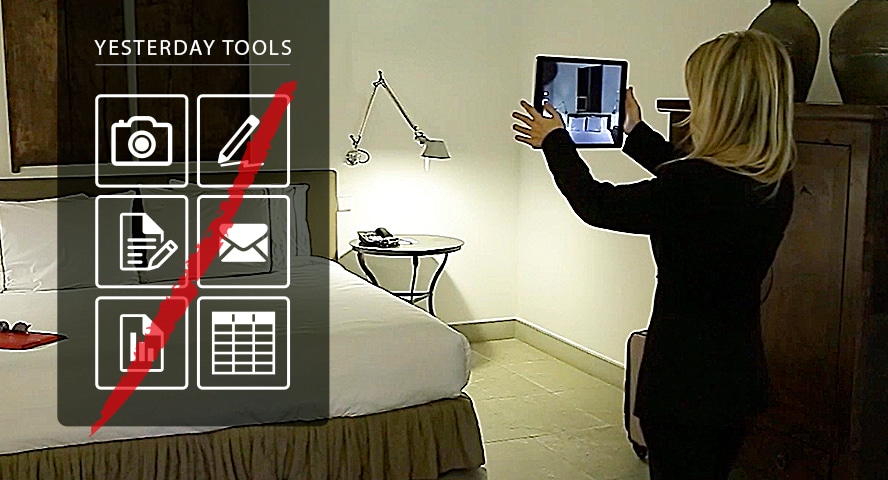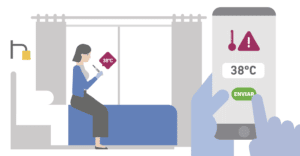The communication among hotel departments has changed a lot over the years. The systems and tools that were used before, are less efficient now. Messages among the different departments of a hotel do not always arrive on time. Other times, they simply get lost on the way.
Today, the interdepartmental communication channel can be any device. Think of WhatsApp, Telegram, walkie-talkies, emails or post-it notes. Any system could be useful. But these tools are inadequate when we seek an efficient communication among hotel departments.
In addition, it’s difficult to know if using those internal communication systems will ensure that messages are received by the right people in the right moment.
We wonder if information will be lost along the way. Will our team get it in time? Too many questions. Loose ends that make it difficult to meet the ultimate goal: to offer customers the best hotel experience.
Efficiency in the communication among hotel departments is possible if you use the right tools
It is true that the percentage of customers who have a negative experience in a hotel is not high. The number of complaints is not very high either. And let’s not talk about the speed at which a complaint is spread over the internet and social networks.
Again we go back to the loose ends, which forces us to act once the situation of conflict has taken place. This is a mistake.
The internal communication among the departments of a hotel has to be very efficient and able to solve problems quickly. Incidents must be resolved until they become a complaint. Or, even worse, before you have a negative online reputation spreading like wildfire.
When a customer registers at a hotel, two situations may arise. One situation in which they try and discover hotel facilities by themselves. Without the intervention of any staff member. Another stage will be one in which employees treat directly clients’ needs, resolve their doubts and handle possible complaints successfully.
In the first scenario, the only thing we can do is to make sure that everything is perfect. In a second one, it will be the hotel team who collects information related to the customer experience.
How to deal with these two situations? A possible answer might be: working with an effective and real-time interdepartmental communication.

Get a real-time interdepartmental communication and sleep peacefully
It would be perfect for employees to have a tool to collect information related to the customer’s experience. Moreover, if that same tool notified who has to act depending on the situation, it would be fantastic.
In a hotel, communication among departments should be centralized through the same channel. In this way, teams would receive comments, orders or responses from their workmates through a single communication support. Messages stay stored, thus. And all employees can have access to them.
Okay, we have already improved the internal communication among hotel departments. Now, we want to know the status of each of these communications. Especially, those that are related to incidents or guest complaints.
This would allow us to offer more effective solutions and learn from the mistakes. Here is the key to make customers trust you.
Iristrace is a mobile and web app which makes it possible to obtain an efficient and real-time interdepartmental communication. Among its functionalities, Iristrace allows a team leader to notify another person which task to perform, add photos or, even, colors in case some elements or data were necessary to highlight.
What does this digital solution mean? Save time collecting data, improving communication among hotel departments and solving incidents resolutions much faster. If you want to know how we work, our success consultants, who are experts in hotels, will be glad to talk to you. Write them to hoteles@iristrace.com or book a meeting by clicking on the link.







